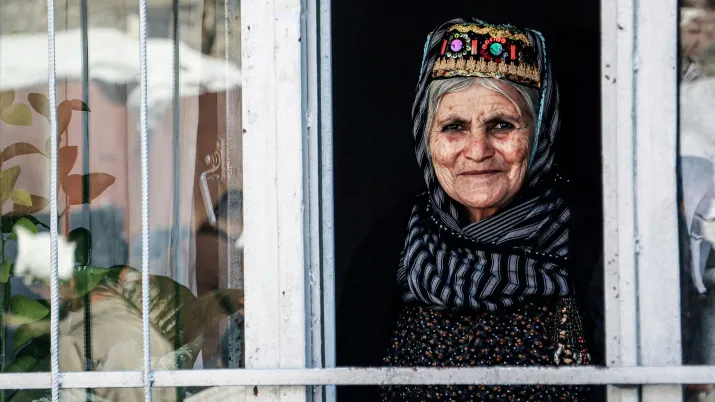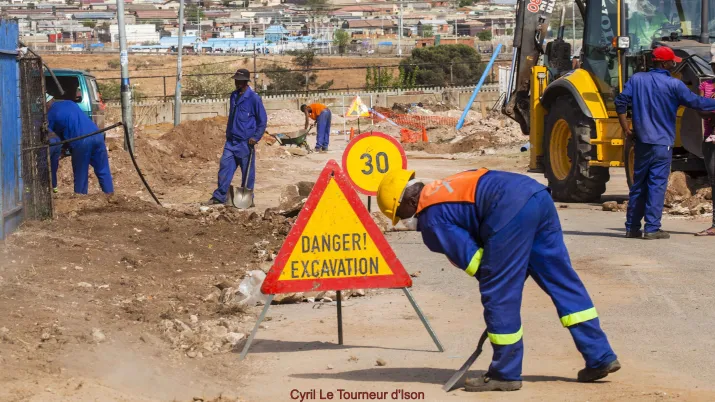Share the page
Fiscal Incidence Analysis

-
Project start date
-
2018Status
Ongoing
-
Project end date
-
2024
-
Global financing amount
-
151 500 €
-
Partners
-
The General Direction for Planning and Economic Policies (DGPPE) of the Ministry of the Economy, Planning and Cooperation of Senegal, University of Cape Town (UCT), World Bank, The Department of Financial Studies and Financial Forecast (DEPF) of the Ministry of Economy and Finance of Morocco, School of Economics – University of Nairobi, Global Development Network (GDN), CEQ Institute
-
Research program
The CEQ Assessment is a tool that analyzes the impact of taxation and social spending on inequality and poverty, allowing governments to assess the redistributive and poverty-reduction impact of their fiscal policy.
In the first phase of the project (2018-2020), Agence Française de Développement (AFD) and the Global Development Network (GDN), in partnership with the Commitment to Equity (CEQ) Institute as well as local universities and local authorities, joined forces to implement the CEQ assessment in four African countries: Morocco, South Africa, Cameroon and Kenya.
In order to document its five-year planning process, Senegal requested the support of AFD and GDN to study the impact of fiscal and social reform scenarios. A second phase of the project, focusing on Senegal but also on methodological issues, is thus taking place over the 2023-2024 period.
Context
In the first phase of the project, Morocco, South Africa, Cameroon and Kenya were selected to participate in the research, analysis, and policy recommendations program, which significantly enhanced the evidence base for efficient and thoughtful redistributive fiscal policy that protects poor and vulnerable households from further impoverishment. Each of these countries learned from, and in some cases incorporated, the successful programmatic experiences from the others. The work program that the AFD-CEQ partnership encompasses also promoted skills sharing and capacity building between countries.
This project was part of the first phase of the Research Facility on Inequalities, coordinated by AFD and funded by the European Union over the 2017-2020 period. The first phase of the Facility has led to the conduct of 22 research projects and the publication of around 100 research papers and policy briefs.
Part of the second phase of this project focuses on Senegal, which is facing a number of important, sometimes contradictory challenges, likely to bring about lasting changes to the social contract and the redistribution of national income, such as:
- the development of gas and oil deposits (and the collection of the associated tax revenues),
- the implementation of a just energy transition partnership (JETP), which at the same time calls for the decarbonisation of growth,
- the desired extension of social protection schemes (health, retirement) to accompany a demographic transition that is still underway,
- the dismantling of energy subsidies to finance more infrastructure and develop better-targeted subsidies for poor households.
There is strong social demand for policies to reduce inequality, but this is taking place against a backdrop of regional instability, increased conflict, global inflation and global warming.
This analysis will be conducted in partnership with the Directorate General of Planning and Economic Policies of the Senegalese Ministry of Planning and the World Bank.
Objectives
The development of the CEQ Assessments, which are the centerpiece of the AFD-CEQ Institute partnership, accomplish two major objectives simultaneously:
- The implementation of CEQ Assessments builds an empirical evidence base (country by country) of the redistributive and poverty-reduction impact of fiscal policy broadly, as well as of individual fiscal elements (revenues or expenditures).
- The implementation of CEQ Assessments together with local research teams completes a knowledge and skill transfer to researchers and policy officers who will remain close to the ongoing policy debate and policy-making bodies who benefit from having this information at their disposal.
The AFD-CEQ Institute partnership therefore leaves in place the basic human infrastructure necessary for additional fiscal incidence analysis, including forward-looking policy simulation.
As part of the second phase of the project, the aim is for Senegal to master the CEQ tax incidence analysis tool and study a series of pro-poor reforms to reduce social and/or regional inequalities.
The expected deliverable is a report quantifying the impact of 5 areas of reform (cost, effects, financing).
Method
The CEQ Assessment is a comprehensive and rigorous tax and benefit incidence analysis which enables to have an active engagement with the policy community.It is designed to address the following four questions:
- How much income redistribution and poverty reduction are being accomplished through fiscal policy?
- How equalizing and pro-poor are specifics taxes and government spending?
- How effective are taxes and government spending in reducing inequality and poverty?
- What is the impact of fiscal reforms that change the size and/or progressivity of a particular tax or benefit?
In order to address these questions, experts from the CEQ working along with AFD researchers and local researchers teams implemented the CEQ methodology in Morocco, South Africa, Cameroon and Kenya, and will do so in Senegal.
Once done, the objective is to mainstream the use of CEQ Assessments:
- By reaching out to the policy community through partnerships and policy forums;
- By disseminating findings through an active communication and advocacy program, undertaken in conjunction with key partners in the research, philanthropic and social activist communities.
Results
You can find below the various publications related to this research project.
Fiscal incidence analysis reports:
- Fiscal incidence, inequality and poverty in Kenya: a CEQ assessment
- The impact of taxes and transfers on poverty and income distribution in South Africa 2014/2015
- Les effets de la politique budgétaire sur la pauvreté et les inégalités au Maroc (in French)
Policy briefs:
- Fiscal Incidence and Public Spending: Public Policy Scenarios for Colombia (January 2024)
- Distributional Impact of Fiscal Policies: A Survey of Methodological Approaches (October 2024)
- Analyse de l’incidence de la fiscalité et des dépenses sociales sur la pauvreté et les inégalités au Sénégal (January 2025, in French only)
Contacts
-
Anda DAVID
Economist, scientific coordinator of the EU-AFD Research Facility on Inequalities




